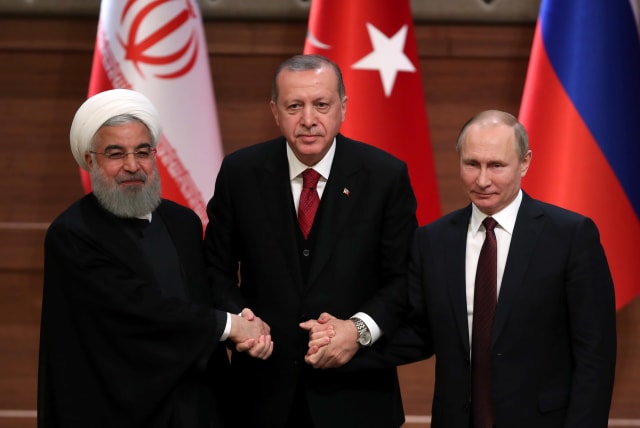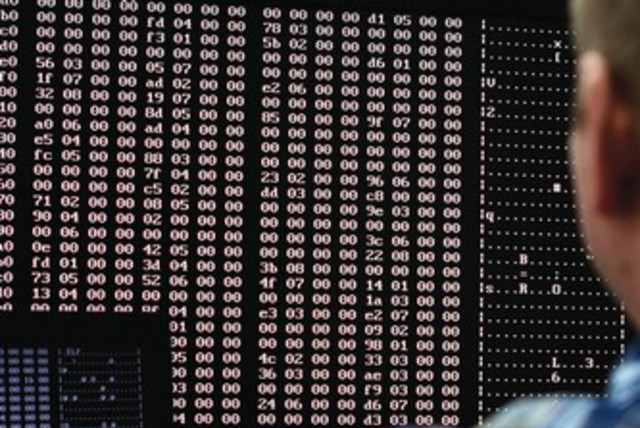Authoritarian regimes and terrorist organizations exert control over the internet covertly - study

The researchers found that state-owned internet companies from wealthier autocracies often provide access networks in poorer autocracies.
Vladimir Putin in Russia, Ali Khamenei in Iran, places run by terrorist organizations as in Gaza, and other authoritarian regimes exert control over the Internet through transit networks that operate covertly, according to a recent study by researchers in the US and Germany.
The work, also shows how more sophisticated authoritarian regimes extend their influence by providing network access in poorer but politically similar countries.
Recent years have seen an increase in government interference in digital communication. Most research on this issue has focused on the application level, studying how content is manipulated or removed on websites, blogs, or social media. However, for governments to obtain and maintain control of digital data flows, they need to secure access to the network infrastructure at the level of Internet service providers.
“This is a mechanism that autocracies seem to prefer, as it’s a lot less visible,” said computer science Prof. Alexander Gamero-Garrido, at the University of California, Davis and a co-author on the paper. The work was led by Eda Keremoğlu at the University of Konstanz, Germany.
Most internet users are familiar with access networks – the providers that supply Internet connections to our homes and businesses, much like local streets. In turn, these access networks connect to transit networks that carry Internet traffic across large distances and around the world – like freeways. The companies that operate these transit networks are much less well-known.
“They function in a shadow space, and nobody knows about them,” Gamero-Garrido said. In the Global North – the powerful and rich regions including North America, Europe, and Australia – transit networks have become less relevant in the last 10 to 15 years as large access networks make deals to connect with each other, Gamero-Garrido said. But they remain important in the rest of the world.
How access and transit networks are controlled in different countries
Gamero-Garrido, Keremoğlu and colleagues used publicly available Border Gateway Protocol (BGP) data to see how access and transit networks are controlled in different countries. These are large tables of Internet addresses that networks announce to each other so they can make connections across the world wide web.
The researchers ranked countries politically based on an index of electoral democracy. They found that overall, there was not much difference in ownership of access networks between democracies and autocracies. But in autocracies, state-owned entities had a higher degree of control over transit networks. This potentially allows the state to monitor and control internet traffic in a more centralized way.
“There are at least 75 countries with a quarter of the world’s internet users where a small group of transit providers is dominant, often a single company,” Gamero-Garrido continued. The researchers also found that state-owned internet companies from wealthier autocracies often provide access networks in poorer autocracies, creating clusters of technological cooperation within the Internet among non-democratic countries.
On April 30, 2022, several weeks after the Russian invasion of Ukraine, the Kherson district in the eastern part of the besieged country experienced a complete Internet shutdown. When service returned a day later, Internet traffic was routed through Rostelecom, Russia’s main and state-owned Internet provider. This incident is only one of the latest in a series of moves to make Russian-occupied areas in Ukraine part of the Russian Internet, the researchers wrote. “It illustrates that governmental control over Internet traffic flows remains a fundamental concern in particular for autocratic regimes, presumably to retain opportunities to interfere with digital communication.”
For those who prefer open exchange of information on the Internet, revealing how authoritarians manipulate networks is a first step.
“Almost no one knows about these companies, Gamero-Garrido said. Some authoritarian leaders might also be susceptible to vanity: a centralized internet structure is also more prone to failure. We can also invest in infrastructure that allows direct interconnection.”
The researchers said that Internet Exchange Points (IXPs) that are often funded in part by states can provide connections among access networks and reduce reliance on transit networks. Privately owned facilities known as colocations (“colos”) provide similar benefits, he concluded.
Jerusalem Post Store
`; document.getElementById("linkPremium").innerHTML = cont; var divWithLink = document.getElementById("premium-link"); if (divWithLink !== null && divWithLink !== 'undefined') { divWithLink.style.border = "solid 1px #cb0f3e"; divWithLink.style.textAlign = "center"; divWithLink.style.marginBottom = "15px"; divWithLink.style.marginTop = "15px"; divWithLink.style.width = "100%"; divWithLink.style.backgroundColor = "#122952"; divWithLink.style.color = "#ffffff"; divWithLink.style.lineHeight = "1.5"; } } (function (v, i) { });

